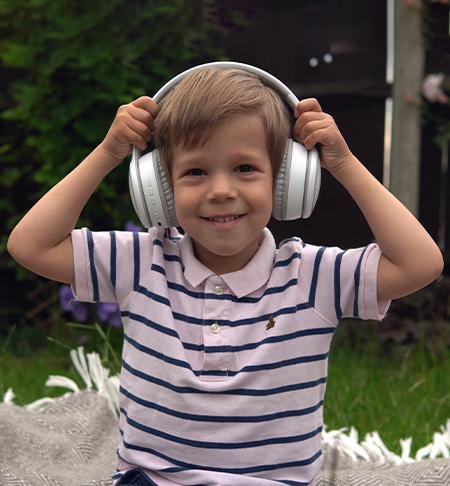 What is Therapeutic Listening?
What is Therapeutic Listening?
Therapeutic Listening is an evidence-based approach combining sound-based intervention with sensory integrative treatment techniques. It provides auditory stimulation with various individually chosen, specially recorded music to stimulate areas of the brain used in listening and processing sensory information.
Therapeutic Listening is to be used as part of a daily home program, in combination with play, motor, and sensory activities, to achieve goals and skills.
The Therapeutic Listening Program typically lasts from 12 weeks to several months, based upon the child’s response and needs, and requires specific equipment to achieve the benefits of listening. The therapists work with the families to obtain the necessary equipment for the program.
In a Therapeutic Listening session with a qualified therapist, such as an occupational therapist, exercise balls, swings, toys, and other equipment are utilized to engage the client in active play while listening to the music.
Play with equipment allows children to practice skills such as balance, coordination, hand-eye coordination, and sensory processing, or other areas in which they may be deficient.
When listening to music, individuals are not allowed to watch TV, play on a tablet, or use any other screen or technology during this time.
Background of Therapeutic Listening
The concept of Therapeutic Listening was influenced and inspired by other listening programs intended to improve brain and sensory functioning, including the Tomatis Listening Program, Auditory Integration Training, Samonas, and Sensory Integrative Framework.
Therapeutic Listening was developed by Sheila Frick, a pediatric occupational therapist and founder of Vital Links, in the hopes of helping individuals with sensory processing disorders as well as social, attention, and communication disorders.
 Benefits
Benefits
Therapeutic Listening can provide many benefits, including:
- Increased attention, focus, and ability to follow verbal directions
- improved interactions with peers and cooperative play skills
- Increased ability to handle transitions and changes in routine/schedule
- Improvements in sleep, bowel and bladder control, and eating
- Improved gross and fine motor skills, as well as motor planning, timing, and sequencing of motor tasks
- Improved mood and regulation of emotions and energy
Please call us at (405) 420-1411 if you know someone who might benefit from Therapeutic Listening. A trained therapist can complete an evaluation to determine if they would benefit from the program.

